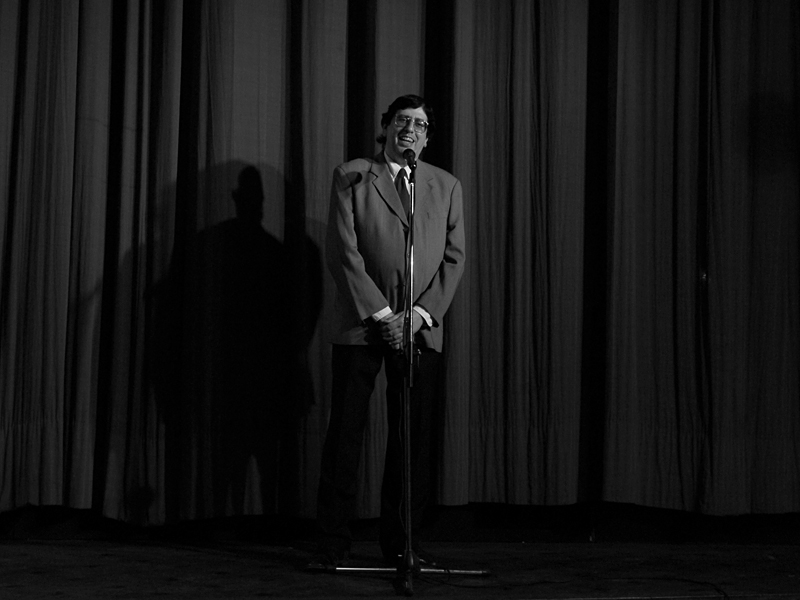From the Columbia City Cinema to the Uptown, smaller cinemas have been closing all around Seattle. And though this Uruguayan film never mentions DVDs or Netflix or Hulu, the same market pressures are indirectly felt on its struggling cinematheque and handful of employees. Looking like a lumpy, forlorn cousin of Alfred Molina, film critic Jorge Jellinek plays a 25-year veteran of the crumbling cinema; a life inside the the film vaults, projection room, and radio studio has left Jorge stooped and clumsy in the harsh sunlight of Montevideo. All he knows is movies; he seems utterly unprepared for anything different. But director Federico Veiroj is less intent on pathos than it appears. Though slow, and shot in black-and-white, A Useful Life has its moments of humor. (Even the supremely patient Jorge grows impatient during an interminable radio-show monologue from his boss.) And what first seems like a soundtrack error to us—chase music, a romantic swelling of violins—is gradually revealed to be the interior film score in Jorge’s head. As he’s forced to reshape his destiny, to become an actor in his own life’s drama, the music becomes heroic—and so, in a quiet way, does he. A Useful Life doesn’t leave you feeling optimistic about the community aspect of art-house cinema, that we should see and discuss worthwhile films together, but it argues that movies still have the power to inspire.
A Useful Life: Death and Life at a Uruguayan Cinema








